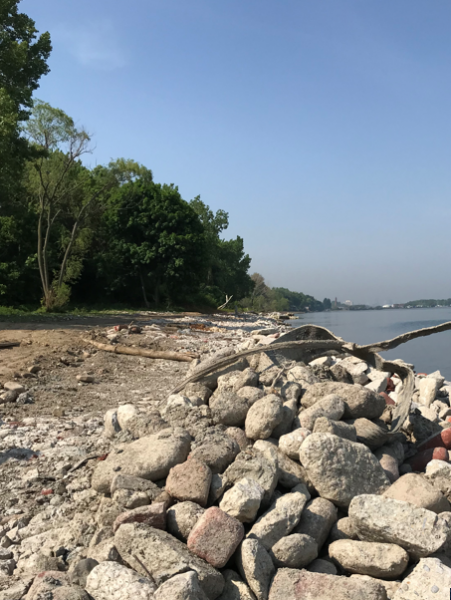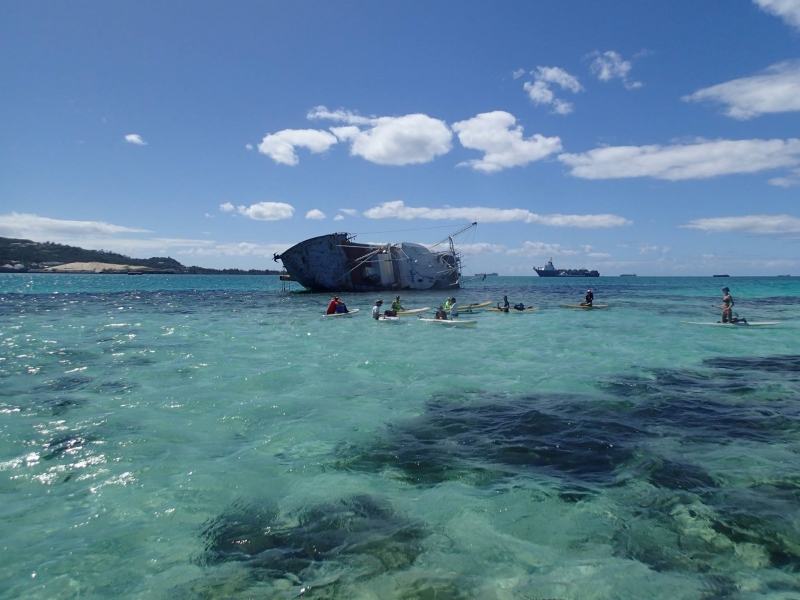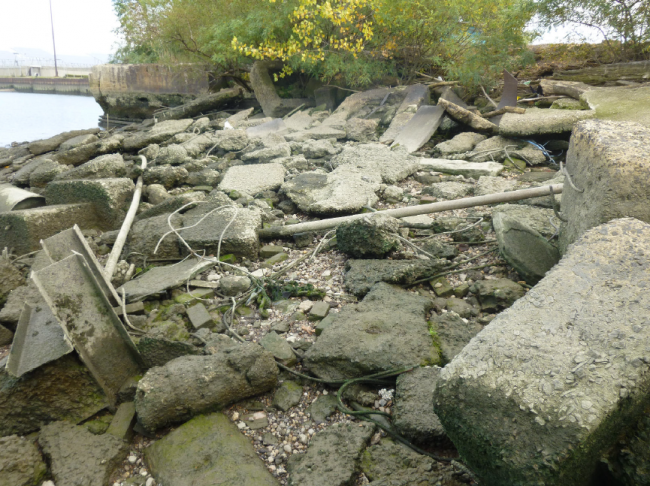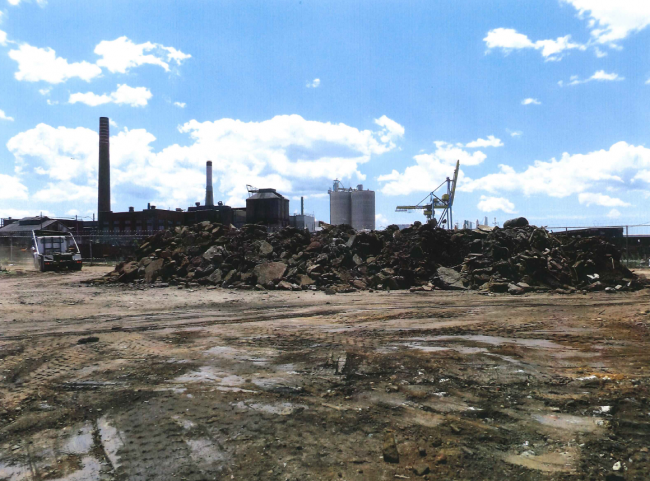This is the second post in a series highlighting community-based marine debris removal and research projects awarded grants during the past year.
The presence of marine debris creates numerous problems for the environment, marine life, and humans. Large marine debris presents its own unique challenges, threatening the ocean, coasts, and waterways by obstructing navigational channels, causing harm to important habitat, and diminishing commercial and recreational activities. Removing large debris requires significant financial and technical resources. Through the NOAA Marine Debris Program’s annual removal grant opportunity, we are collaborating with partners who are working to remove large marine debris from their communities.
The remnants of a demolished amusement park at Euclid Beach Park, along the shores of Lake Erie, have adversely impacted the shoreline and important fish spawning habitats. Cleveland Metroparks is working to reinvigorate this area by removing 6,250 tons of debris, such as large concrete slabs and metal. Volunteer cleanup events and large-scale removal efforts are removing land-based and near shore debris. Partners are also installing a new educational display to help park visitors better understand the impacts of marine debris. Restoration efforts will improve spawning habitat for largemouth bass, bluegill sunfish, and white crappie, and will also improve recreational-use areas for park goers.

A large fishing vessel grounded in a lagoonal reef off the coast of Saipan, Commonwealth of the Northern Mariana Islands (CNMI). The 83-foot long derelict fishing vessel, Lady Carolina, was grounded as a result of the category 4 Typhoon Soudelor in August 2015. The vessel crushed, fractured, and scraped important coral reef habitat. Hawksbill and green sea turtles, and Spinner dolphins have been observed near the grounding site. Pacific Coastal Research & Planning is working to remove the vessel. They are also collaborating with additional project partners to conduct public outreach and education efforts around properly securing vessels and fishing gear, marine debris and its impacts, and the Lady Carolina removal project.

The Camden County Municipal Utilities Authority of New Jersey is working to remove large marine debris as part of a larger project to create a community-focused park with a living shoreline along a tidal freshwater portion of the Delaware River. The removal of marine debris such as heavy concrete rubble and construction of the living shoreline will restore native aquatic habitat, encourage the repopulation of mussels and supported species, and improve local community access to the Delaware River. This project also includes citizen engagement and outreach components that encourage volunteer cleanups as well as long-term monitoring of habitat improvements along the living shoreline.
Three sunken vessels created navigational hazards and an environmental threat in the Makah Marina within the Makah Tribe Indian Reservation in Neah Bay, Washington. Removal was necessary to eliminate these hazards and avoid disintegration of the vessels into a large debris field that would be more difficult to remove. The Makah Indian Tribe led the effort to remove these abandoned and derelict vessels (ADVs) through a contracted salvage firm. In January 2018, the three sunken vessels were successfully removed, usable metal was recycled, and the rest disposed of. In addition to managing and assisting with the removal, tribal staff is conducting long term educational and public outreach efforts around vessel maintenance and the negative impacts of ADVs with boat owners.




Who can I speak to about finding salvage jobs for military dive training? The Marianas Island government has sent up a community application to the Innovative Readiness Training Office at DoD to receive funding to remove the fishing vessel. I would like to encourage NOAA to let communities know about this option, as military dive units are seeking training and are happy to collaborate. Feel free to contact me for questions or more information.